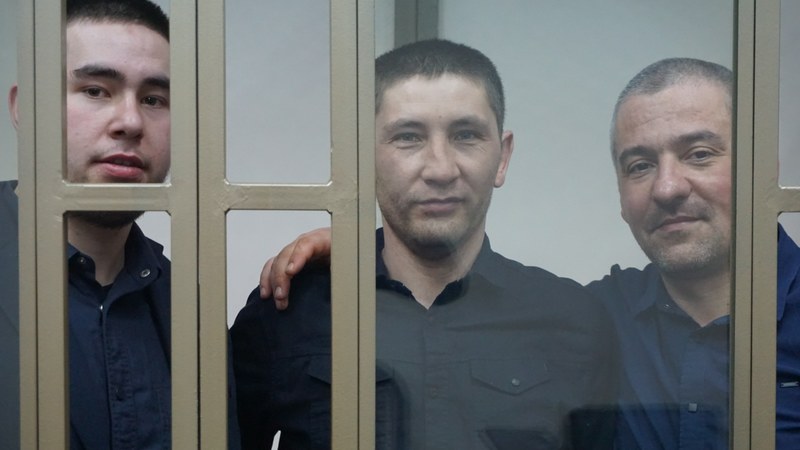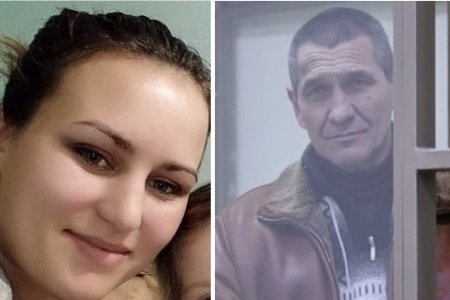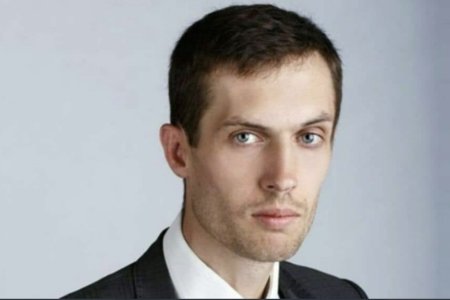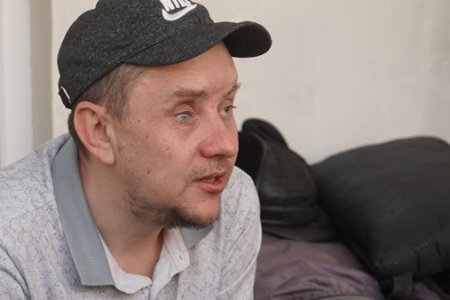
Russia’s penal service is refusing to move three Ukrainian political prisoners from the very worst of Russian conditions of imprisonment. Crimean Solidarity civic activist Rustem Emiruseinov and two other Crimean Tatars, Arsen Abkhairov and Eskender Abdulganiev, have now been illegally held in the worst of Russian prison cells for six months longer than their sentences demand. The three are all recognized political prisoners serving horrifically long terms of imprisonment for their unwillingness to be silent about other victims of repression, and / or their religious and political views.
Lawyer Edem Semedlyaev explained to Crimean Solidarity that, on Arsen Abkhairov’s behalf, he obtained confirmation from the Southern District Military Court in Rostov that the initial term of imprisonment in a prison should have ended six months ago. The men should then have been moved to a harsh-regime prison colony where the conditions are still terrible, but not as bad as being incarcerated in a small cell. Abkhairov appealed to the Southern District Military Court, which passed the sentences on the men, for clarification as to the point from which the two-year term in prison is counted. The Court confirmed, against the claim by both the prison and prosecutor Vladislav Kuznetsov, that the period during which the men were held in SIZO [remand prison] after their sentences came into force, did count towards the term in a prison.
Rustem Emiruseinov (b. 1979); Arsen Abkhairov (b. 1985) and Eskender Abdulganiev (b. 1997) have all been in Russian captivity since 14 February 2019, when they became victims of Russia’s most notorious conveyor belt prosecutions in occupied Crimea. Eskender was just 21 at the time of his arrest. Both Emiruseinov and Abkhairov had actively helped political prisoners and their families.
After the armed ‘searches’ on 14 February of the men’s homes in Oktiabrske (Krasnohvardiisk district) Aliye Emiruseinova was asked if her husband had been involved in the Crimean Solidarity human rights movement. She replied: “Can you tell me how it is possible in Crimea to not be involved in Crimean Solidarity if you have a conscience?” Her husband had responded to the mounting repression under Russian occupation by becoming a Crimean Solidarity activist who visited political trials, took part in flash-mobs protesting against mounting repression and in other ways helped political prisoners. A week before his arrest, he had travelled to Rostov (Russia) for the latest court hearing against five Crimean Tatar political prisoners and was planning to go there again. He was, in short, a typical victim of all these Russian prosecutions.
There was, in fact, little new in this case, except, perhaps, in the ferocity of Russian repression against the men’s mothers, lawyers and others demonstrating solidarity with the men.
The armed men who burst into the men’s homes never pretended to be looking for anything but ‘prohibited religious literature’. Nor is ‘looking for’ the correct term, since, at least at the Emiruseinov home, the FSB planted books, in a place where no devout Muslim would have keep such material.
Russia once again used serious ‘terrorism’ charges although the three men were accused only of entirely unproven ‘involvement’ in Hizb ut-Tahrir, a peaceful transnational Muslim movement which is legal in Ukraine, and which is not known to have committed any acts of terrorism or violence anywhere in the world. The prosecutions are based solely on a highly secretive and probably politically motivated ruling by the Supreme Court in 2003 declaring Hizb ut-Tahrir ‘terrorist’.
At least one person, in this case, Emiruseinov gets charged with ‘organizing’ a fictitious Hizb ut-Tahrir group (under Article 205.5 § 1 of Russia’s criminal code), while the others are charged with ‘involvement’ in the supposed group. It had long become standard in occupied Crimea for the FSB to add the overtly surreal charge (under Article 278) of ‘planning to violently seize power’.
There was no evidence to back the charges. As well as planted ‘prohibited literature’, the men were charged on the basis of illicitly made tapes of three meetings where the men read a book and discussed the upbringing of children, relations between men and women; and priorities in life. Assessments of these conversations were provided by FSB -loyal ‘experts’ who invariably find ‘evidence’ of Hizb ut-Tahrir affiliation in the use of this or that word or choice of topic for discussion.
Russia’s political trials primarily hinge on anonymous witnesses whose ‘testimony’ cannot be verified and who may not even know the defendants. The judges invariably allow such secret testimony and actively obstruct efforts by the defence to show that the ‘witnesses’ are lying.
The ‘trial’ began in January 2020 at the notorious Southern District Military Court in Rostov-on-Don, with all of the above and other flaws demonstrated at each of the 21 hearings. Despite this, prosecutors Valery Kuznetsov and Igor Nadolinsky claimed that the men’s ‘guilt’ had been proven and demanded huge sentences. On 3 November 2020, presiding judge Ruslan Plisko, together with Igor Kostin and Yevgeny Zviagin obliged, sentencing Rustem Emiruseinov to 17 years harsh regime imprisonment; Arsen Abkhairov to 13 years and Eskender Abdulganiev – to 12 years. In each case, the first two years was to be in a prison. Even before Russia began pardoning convicted murderers, armed robbers and other real criminals in exchange for agreeing to fight against Ukraine, the sentences for real crimes were often significantly lower than those against Crimean Tatars for civic activism or ‘thought crimes’.
The sentences were upheld on 1 November 2021, with the Military Court of Appeal in Vlasikha ignoring all of the flaws in the charges, the lack of evidence and the fact that the men are recognized political prisoners whose release has been demanded far beyond Ukraine and Russia.
Please write to Rustem Emiruseinov, Arsen Abkhairov and Eskender Abdulganiev!
The letters tell them they are not forgotten, and show Moscow that their persecution is being followed. Letters need to be in Russian, and on ‘safe’ subjects. If that is a problem, use the sample letter below (copying it by hand), perhaps adding a picture or photo. Do add a return address so that the men can answer.
Sample letter
Привет,
Желаю Вам здоровья, мужества и терпения, надеюсь на скорое освобождение. Простите, что мало пишу – мне трудно писать по-русски, но мы все о Вас помним.
[Hi. I wish you good health, courage and patience and hope that you will soon be released. I’m sorry that this letter is short – it’s hard for me to write in Russian., but you are not forgotten. ]
The envelopes can be written in Russian or English as below.
Rustem Emiruseinov
412315 Россия, Саратовская область, г. Балашов, ул. Уральская, 17, тюрьма УФСИН России по Саратовской области
Эмирусеинову, Рустему Решатовичу, 1979 г.р.
[In English: 412315 Russian Federation, Saratov region, Balashov, 17 Uralskaya St, Prison of the Saratov region penal service
Emiruseinov, Rustem Reshatovich, b. 1979 ]
Eskender Abdulganiev
600020 Россия, г. Владимир, ул. Большая Нижнгородская,67, ФКУ Тюрьма-2 Владимирский централ
Абдулганиеву, Эскендеру Иззетовичу, 1998 г.р.
[In English: 600020 Russian Federation, Vladimir, Bolshaya Nizhngorodskaya St. 67, Prison No. 2, Vladimir Central
Abdulganiev, Eskender Izzetovich, b. 1997 ]
Arsen Abkhairov
663180,, Россия, Красноярский край, г. Енисейск, ул. Декабристов, 11, ФКУ Тюрьма-2
Абхаирову, Арсену Ремзиевичу, 1987 г.р.
[In English: 663180 Russian Federation, Krasnoyarsk Area, Yeniseisk, 11 Dekabrist St, Prison No. 2
Abkhairov, Arsen Remzievich, b. 1987 ]



